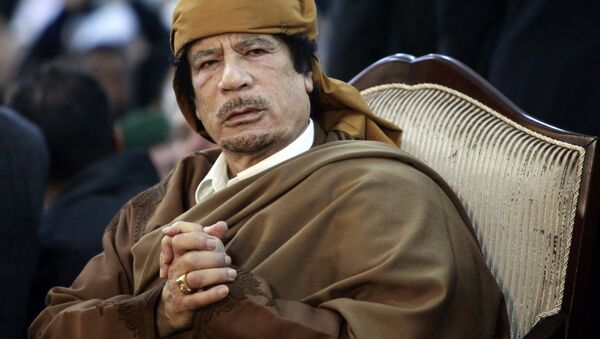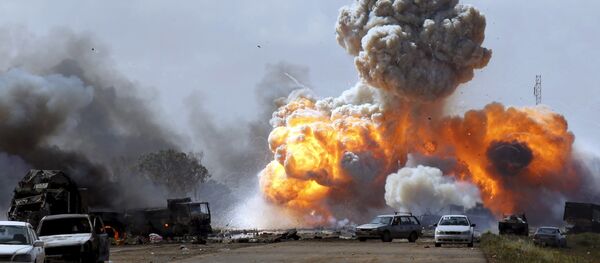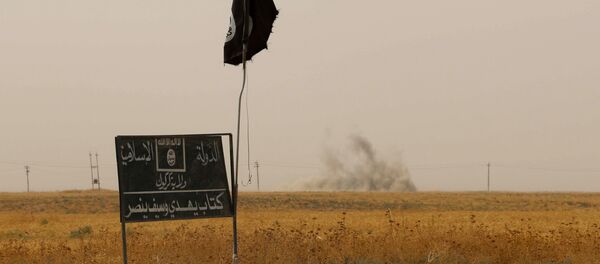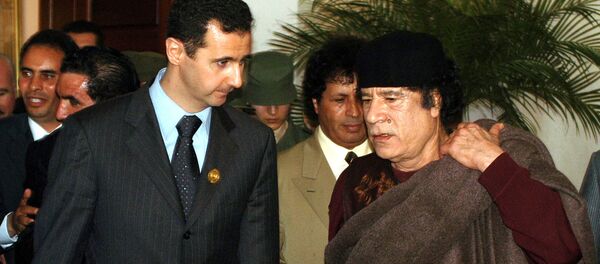MOSCOW (Sputnik) — A politician and military officer, the former de facto head of the Great Socialist People's Libyan Arab Jamahiriya (1969-2011), Muammar Gaddafi (full name Muammar bin Muhammad Abu Minyar Abdel Salam bin Hamid al-Gaddafi), is believed to have been born in Tripolitania, Libya, in 1942. The exact date of his birth is unknown, with many of his biographers claiming that the year of his birth is 1940. Gaddafi himself wrote that he was born in a Bedouin tent some 20 miles south of Sirte, Libya, in the spring of 1942.
As a student, he created a clandestine organization, the Free Officers Movement, which, like Nasser's Free Officers, sought to seize power in the country.
In 1969, Gaddafi was appointed a Signals Corps aide-de-camp, and headed one of the conspiracies hatched in the Libyan armed forces at the time. On September 1, 1969, a group of insurgents led by Captain Gaddafi seized the royal palace, government buildings, radio and television, and declared that King Idris was deposed. Gaddafi proclaimed Libya a republic. He became the head of the Revolutionary Command Council and commander-in-chief of the armed forces. Since that time he served as the de facto ruler of the country, holding a number of official posts.
In 1979, Muammar Gaddafi resigned his presidency under the pretext that he intended to work for a "continuation of the revolution". Officially he was now titled the Leader of the Revolution.
Libya's political structure now included revolutionary committees designed to pursue revolutionary policies via a system of people's congresses. Even after resigning all of his government posts, Gaddafi remained head of state, or Brotherly Leader of the Revolution and Brother Colonel, as he was called.
Mass protests erupted in Libya in mid-February 2011, with protesters demanding that Muammar Gaddafi, who by that time had ruled the country for over 40 years, step down. Later the protests grew into an armed confrontation between government forces and the opposition.
The hostilities resulted in Gaddafi's opponents imposing control over almost the entire Libya. In August, with NATO air support, they seized the capital, Tripoli.
For almost four days, Gaddafi's body was publicly on display inside an industrial refrigerator in Misrata. He and his son Mutasim were buried in the desert. The location of his grave is kept secret out of fear that it may attract his supporters.
Following Gaddafi's death, a power struggle erupted at state and regional levels between various clans and armed factions. The situation in the country effectively escalated into a civil war.





